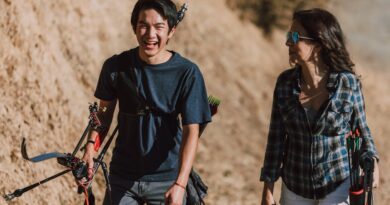Ethical Practices for Responsible Hunting
Hunting has been a part of human history for centuries, providing food, materials, and even cultural significance to various societies around the world. However, as our understanding of wildlife conservation and ethical treatment of animals has evolved, so too has the way we approach hunting. In today’s world, responsible hunting is not just about the act of taking down game but also about ensuring the sustainability of wildlife populations and respecting the natural environment.
But what exactly does ethical hunting entail? What are the principles and practices that guide responsible hunters in their pursuit of game? In this article, we will delve into the world of ethical practices for responsible hunting, exploring the various aspects that define this approach and its importance in the modern-day context. Let’s embark on a journey to understand the essence of ethical hunting and how it shapes our relationship with nature.
The Foundations of Ethical Hunting

At the core of ethical hunting lies a deep respect for wildlife and the natural world. Ethical hunters prioritize the well-being of the animals they hunt, as well as the conservation of their habitats. This means adhering to a set of principles that govern their behavior in the field, ensuring that they hunt in a manner that is sustainable, humane, and respectful.
One of the key principles of ethical hunting is the concept of fair chase. This principle dictates that hunters should give animals a fair chance to evade capture or escape, rather than relying on methods that guarantee a kill. Fair chase hunting is seen as a way to maintain the balance of nature and uphold the integrity of the hunting experience.
Sustainability and Conservation

Another crucial aspect of ethical hunting is the emphasis on sustainability and conservation. Responsible hunters understand the importance of maintaining healthy wildlife populations and preserving natural habitats for future generations. This means following regulations and quotas set by wildlife management authorities, to ensure that hunting activities do not threaten the long-term viability of species.
Conservation organizations play a vital role in promoting ethical hunting practices and supporting efforts to protect wildlife. These organizations work to educate hunters on conservation issues, fund research on population dynamics, and advocate for policies that safeguard the environment. By aligning with these initiatives, hunters can contribute to the preservation of biodiversity and the sustainability of ecosystems.
Humane Treatment of Animals

Central to ethical hunting is the principle of humane treatment of animals. Hunters are expected to minimize the suffering of their prey by using appropriate hunting methods and techniques that ensure a quick and clean kill. This includes using weapons that are capable of delivering a lethal shot, practicing marksmanship to ensure accuracy, and aiming for vital organs to ensure a swift death.
In addition to making ethical shots, hunters are also encouraged to track wounded animals diligently to minimize suffering. This may involve enlisting the help of trained tracking dogs, using blood trailing techniques, and employing other strategies to locate and dispatch injured game. By prioritizing the welfare of the animals they hunt, ethical hunters demonstrate respect and empathy towards the creatures that share our world.
Ethical Considerations in Trophy Hunting

One of the most debated aspects of hunting is trophy hunting, where hunters pursue large or rare animals for their impressive horns, antlers, or other body parts. While some argue that trophy hunting can contribute to wildlife conservation efforts and support local communities, others criticize it as a cruel and wasteful practice that prioritizes individual gratification over conservation goals.
From an ethical standpoint, trophy hunting raises complex considerations about the impact on animal populations, the ethics of killing for sport, and the cultural attitudes towards wildlife. Responsible trophy hunters are expected to adhere to strict guidelines that govern the selection of targets, the methods of hunting, and the utilization of harvested animals. By following these guidelines and supporting conservation initiatives, ethical trophy hunters aim to minimize the negative effects of their activities and contribute positively to wildlife management.
Legal and Regulatory Frameworks
Ensuring ethical hunting practices also entails compliance with legal and regulatory frameworks that govern hunting activities. Laws and regulations are put in place to protect wildlife, prevent overexploitation, and promote sustainable hunting practices. Hunters are required to obtain licenses, permits, and tags, adhere to hunting seasons and bag limits, and report their harvests accurately to wildlife authorities.
By obeying the law and supporting wildlife management efforts, hunters can contribute to the conservation and protection of wildlife populations. Illegal hunting, poaching, and other unethical practices not only undermine conservation efforts but also endanger the future of species and ecosystems. Responsible hunters play a crucial role in upholding the rule of law and promoting ethical behavior in the hunting community.
Ethical Hunting and Indigenous Communities
For many indigenous communities around the world, hunting is not just a recreational activity but a way of life deeply rooted in tradition and culture. Indigenous hunters have long practiced sustainable hunting methods that respect the land, the animals, and the spiritual connections that bind them to the natural world. Ethical hunting in indigenous communities is guided by traditional knowledge, customs, and values that emphasize the importance of harmony with nature.
Respecting the rights of indigenous hunters and recognizing their contributions to wildlife conservation are essential aspects of ethical hunting practices. By engaging with indigenous communities, sharing knowledge, and supporting their efforts to preserve traditional hunting practices, conservation organizations and government agencies can promote a holistic approach to wildlife management that respects cultural diversity and fosters cooperation.
Public Perception and Education
Public perception of hunting plays a significant role in shaping attitudes towards ethical hunting practices. Misconceptions, stereotypes, and misinformation about hunting can fuel opposition to hunting activities and hinder efforts to promote responsible hunting. Education and outreach are essential tools for enhancing public understanding of the role of hunting in wildlife management, conservation, and sustainable use of natural resources.
By engaging with the public, sharing stories of ethical hunters, and highlighting the positive contributions of hunting to conservation efforts, we can build empathy, respect, and appreciation for responsible hunting practices. Encouraging dialogue, fostering partnerships, and promoting transparency in hunting activities can help bridge the gap between hunters and non-hunters and build a shared vision for a future where hunting and conservation go hand in hand.
Conclusion
In conclusion, ethical practices for responsible hunting are grounded in principles of respect, sustainability, and conservation. By upholding these principles, hunters can contribute to the well-being of wildlife populations, the protection of natural habitats, and the preservation of cultural traditions. Ethical hunting is not just a set of rules or guidelines but a way of life that reflects our values, our ethics, and our commitment to a harmonious relationship with the natural world.
As we navigate the complexities of hunting in the modern world, it is essential to remember that our actions have far-reaching consequences for the future of wildlife and ecosystems. By adopting ethical practices, supporting conservation efforts, and promoting dialogue and understanding, we can ensure that hunting remains a sustainable and responsible activity that enriches our lives and protects the beauty and diversity of the natural world.
Let us strive to be stewards of the land, guardians of the wildlife, and advocates for ethical hunting practices that honor the past, enrich the present, and safeguard the future. Together, we can create a world where responsible hunting is not just a choice but a shared commitment to the well-being of our planet and all its inhabitants.




